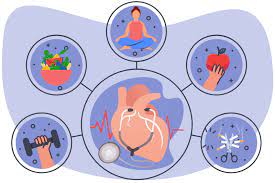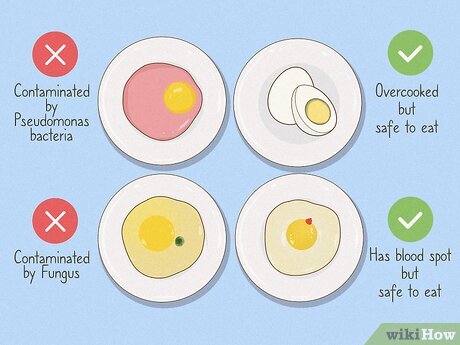Small Changes, Big Impact: Manage cholesterol and reclaim your well-being
By: Saika J
High cholesterol is a growing concern worldwide, silently raising the risk of heart disease, stroke, and other health complications. But the good news is, you have significant control over your cholesterol levels through everyday lifestyle choices. This guide explores simple yet powerful habits you can incorporate into your routine to keep your cholesterol in check and promote a healthier, happier you.
The Power of Fiber: Binding Bad Cholesterol (Soluble Fiber)
Imagine cholesterol as a sticky substance clinging to your artery walls. Soluble fiber acts like a sponge, absorbing this unwanted cholesterol and escorting it out of your body. Foods rich in soluble fiber include:
- Oatmeal: A breakfast champion, oatmeal provides a hearty dose of soluble fiber to kickstart your day.
- Beans and Lentils: These nutritional powerhouses are packed with protein and fiber, making them a versatile and heart-healthy addition to soups, salads, and stews.
- Fruits: Apples, pears, and berries are not just delicious but also excellent sources of soluble fiber. Enjoy them as snacks, in smoothies, or baked into healthy desserts.
Healthy Fats: Swapping Saturated for a Heart-Friendly Choice
Not all fats are created equal. Saturated fats, found in red meat, processed meats, and full-fat dairy products, can raise your LDL (“bad”) cholesterol. Here’s how to make smart swaps for heart-healthy fats:
- Olive Oil: This liquid gold from the Mediterranean is a staple in heart-healthy diets. Use it for cooking, drizzling on salads, or dipping bread.
- Avocados: These creamy fruits are loaded with healthy monounsaturated fats and fiber, making them a perfect addition to toast, salads, or guacamole.
- Nuts and Seeds: Almonds, walnuts, flaxseeds, and chia seeds are all excellent sources of healthy fats, protein, and fiber. Enjoy them in moderation as a snack or sprinkle them on oatmeal or yogurt.
- Fatty Fish: Salmon, tuna, and sardines are rich in omega-3 fatty acids, which have been shown to lower triglycerides (another form of fat in the blood) and improve overall heart health. Aim to incorporate fatty fish into your diet at least twice a week.
Garlic: A Natural Cholesterol Fighter
This pungent bulb has been used for centuries for its medicinal properties. Research suggests that consuming garlic can reduce LDL cholesterol levels by about 10% if taken regularly. Here’s how to incorporate garlic into your diet:
- Minced Garlic: Add a generous amount of minced garlic to stir-fries, pasta sauces, or curries for a flavor boost and potential cholesterol-lowering benefits.
- Roasted Garlic: Roasting garlic mellows its sharp flavor and creates a creamy texture. Enjoy it spread on toast, mashed into mashed potatoes, or blended into sauces.
- Garlic Supplements: For those who dislike the taste of raw garlic, taking garlic supplements can be an alternative approach. Consult with your doctor to determine the appropriate dosage for you.
Cinnamon: A Spice with Heart-Healthy Benefits
Beyond its warming aroma and delicious flavor, cinnamon offers surprising heart-healthy potential. Studies indicate that cinnamon can help reduce LDL cholesterol and triglycerides while raising HDL (“good”) cholesterol.
Here’s how to enjoy the benefits of cinnamon:
- Sprinkle it On: Add a dash of cinnamon to your morning oatmeal, yogurt, or coffee for a warm and flavorful start to your day.
- Baking Buddy: Use cinnamon in baking recipes for cakes, cookies, and muffins. Not only will it add a delicious flavor, but it may also contribute to a heart-healthy treat.
- Spice Up Your Dishes: Explore incorporating cinnamon into savory dishes like stews, curries, and even Moroccan-inspired tagines.
Move Your Body: Exercise for a Healthy Heart
Physical activity is a powerful tool for managing cholesterol. Regular exercise helps raise HDL cholesterol while lowering LDL cholesterol. Aim for at least 30 minutes of moderate-intensity exercise most days of the week. Walking, cycling, swimming, and dancing are all excellent ways to get your heart rate up and promote overall health.
Mindful Eating: Making Conscious Choices
In today’s fast-paced world, it’s easy to mindlessly snack or overeat. Conscious eating involves paying full attention to the experience of eating and drinking. This practice helps with:
- Recognizing Hunger and Fullness Cues: Tuning into your body’s natural hunger and fullness signals allows you to eat until satisfied and avoid overeating.
- Making Healthy Food Choices: When you’re mindful of your eating habits, you’re more likely to make conscious choices about the foods you consume, opting for nutritious options over processed snacks.
- Portion Control: By being mindful of your portions, you can ensure you’re consuming the right amount of calories and nutrients without overindulging.
Here are some tips for practicing mindful eating:
- Slow Down and Savor: Take time to chew your food thoroughly and appreciate its taste and texture. This allows your body time to register satiety signals, preventing overeating.
- Turn Off Distractions: Put away your phone and avoid watching TV while eating. Focus on the experience of eating and enjoy the company of those dining with you.
- Use Smaller Plates: Studies show that using smaller plates can trick your brain into feeling satisfied with a smaller portion.
- Plan Your Meals: Planning your meals and snacks in advance can help you make healthy choices and avoid unhealthy impulse decisions.
Beyond Diet and Exercise: A Holistic Approach to Cholesterol Management
While diet and exercise are cornerstones of cholesterol management, a holistic approach is key. Here are some additional factors to consider:
- Manage Stress: Chronic stress can contribute to unhealthy eating habits and elevated cholesterol levels. Find healthy ways to manage stress, such as yoga, meditation, or spending time in nature.
- Quality Sleep: Aim for 7-8 hours of quality sleep each night. Insufficient sleep can disrupt hormones that regulate appetite and metabolism, potentially impacting cholesterol levels.
- Weight Management: If you’re overweight or obese, losing even a moderate amount of weight can significantly improve your cholesterol profile.
- Regular Checkups: Schedule regular checkups with your doctor to monitor your cholesterol levels and discuss any concerns you may have. They can also provide personalized advice based on your individual health profile.
- Smoking Cessation: Smoking is a significant risk factor for heart disease and can worsen cholesterol levels. Quitting smoking is one of the most impactful steps you can take for your overall health.
Remember, you are not alone in this journey! Many resources and support systems are available to help you manage your cholesterol and live a heart-healthy life.
Here are some resources to get you started:
- National Heart, Lung, and Blood Institute (NHLBI): https://www.nhlbi.nih.gov/
- American Heart Association (AHA): https://www.heart.org/
- American College of Cardiology (ACC): https://www.acc.org/
By incorporating these simple yet powerful habits into your daily routine, you can take control of your cholesterol levels and build a foundation for a healthier, happier you. Embrace a heart-healthy lifestyle and empower yourself to conquer bad cholesterol!




